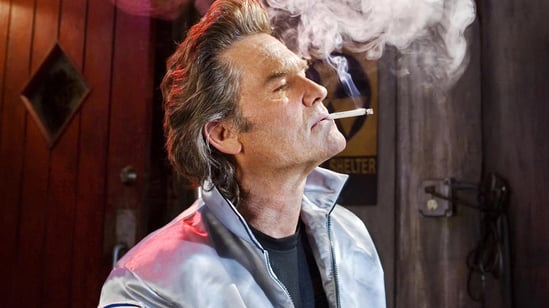Death Proof: A Thrill Ride of Fear and Feminine Power
Cinemapedia
Quentin Tarantino’s Death Proof is a high-octane homage to grindhouse cinema, blending visceral thrills with a subversive exploration of gender dynamics. Released in 2007 as part of the Grindhouse double feature alongside Robert Rodriguez’s Planet Terror, Death Proof is a uniquely structured tale of terror and empowerment, showcasing Tarantino’s flair for stylized dialogue, unforgettable characters, and explosive action.
Two Acts of Terror and Revenge
The film is divided into two distinct acts, both centered on Stuntman Mike (Kurt Russell), a charismatic yet menacing figure who uses his "death-proof" car as a weapon against unsuspecting women. In the first act, he preys on a group of young women in Austin, Texas, culminating in a shocking and brutal crash. However, the second act flips the narrative, introducing a new group of women—including real-life stuntwoman Zoë Bell playing herself—who turn the tables on Mike in a heart-pounding pursuit.
This dual structure allows Tarantino to juxtapose horror and empowerment, creating a narrative that evolves from a chilling slasher to an exhilarating revenge thriller. The film’s pacing, while deliberately slow in its buildup, rewards viewers with a cathartic and adrenaline-fueled finale.
A Grindhouse Aesthetic
Death Proof embraces the visual language of exploitation cinema, complete with film grain, scratches, and jump cuts that evoke the feel of a vintage grindhouse feature. The cinematography by Quentin Tarantino himself captures the raw energy of the car chases, using practical effects and dynamic camera angles to immerse viewers in the action.
The film’s meticulous attention to detail extends to its production design, with retro-inspired costumes and settings that pay homage to 1970s genre films. Each frame is infused with a sense of nostalgia, yet the story remains firmly rooted in Tarantino’s modern sensibilities.
A Pulse of Nostalgia and Rebellion
As with all Tarantino films, the soundtrack of Death Proof is a standout element. Featuring an eclectic mix of rock, soul, and pop tracks, the music serves as both a narrative device and a mood-setter. Songs like "Hold Tight" by Dave Dee, Dozy, Beaky, Mick & Tich and "Down in Mexico" by The Coasters perfectly complement the film’s tone, amplifying both its suspense and energy.
The diegetic use of music—often playing from car radios or jukeboxes—adds an immersive quality to the viewing experience, making the soundtrack an integral part of the film’s identity.
Power, Fear, and Retribution
At its core, Death Proof is a commentary on power dynamics and the resilience of women in the face of violence. Stuntman Mike represents toxic masculinity, using his charm and physical dominance to manipulate and harm. However, the women he targets ultimately reclaim their agency, transforming from victims to victors.
The film’s exploration of fear and retribution is both visceral and symbolic, with the climactic chase serving as a metaphor for overcoming oppression. Tarantino’s decision to cast Zoë Bell as a fearless stuntwoman underscores the theme of feminine strength, blurring the line between character and performer.
A Bold and Unconventional Thriller
Death Proof is a polarizing yet undeniably bold entry in Quentin Tarantino’s filmography. Its unconventional structure and deliberate pacing may challenge some viewers, but its exhilarating action sequences and subversive themes leave a lasting impression. Kurt Russell delivers a chilling performance as Stuntman Mike, while the ensemble cast of strong, multidimensional women adds depth and resonance to the story.
With its blend of retro aesthetics, pulse-pounding action, and thought-provoking themes, Death Proof is a film that defies categorization. It is both a love letter to grindhouse cinema and a celebration of feminine resilience, making it a uniquely thrilling and empowering cinematic experience.


